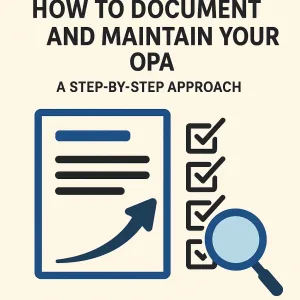Introduction
Project management is a critical discipline that involves planning, executing, and overseeing projects to achieve specific goals within defined constraints such as time, budget, and resources. It plays a vital role across various industries, including construction, IT, healthcare, and marketing, ensuring that projects are completed efficiently and effectively. As organizations increasingly rely on structured project management methodologies to drive success, the demand for skilled project managers continues to grow.
For aspiring project managers, especially those without prior experience, understanding industry standards and regulations is essential. These standards serve as a framework that guides project management practices, ensuring consistency, quality, and accountability. Familiarity with these guidelines not only enhances a project manager’s credibility but also equips them with the tools necessary to navigate the complexities of project execution.
New project managers must recognize the relevance of these standards in their roles. By grasping the foundational principles of project management, they can better align their projects with organizational goals and stakeholder expectations. This knowledge is particularly crucial for those entering the field without a background in project management, as it provides a roadmap for developing the skills and competencies needed to succeed. Embracing industry standards can significantly enhance their ability to manage projects effectively, fostering confidence and competence in their new roles.
In this blog post, we will explore the essential regulations and standards in project management, offering insights and practical tips for those looking to embark on a successful career in this dynamic field.
Understanding Project Management Standards
As an aspiring project manager, familiarizing yourself with project management standards is crucial for your professional development. These standards serve as guidelines that help ensure projects are executed efficiently and effectively, regardless of the industry. Here’s an overview of what project management standards are, their importance, and some of the major frameworks you should know.
What Are Project Management Standards?
Project management standards are established guidelines, principles, and practices that provide a framework for managing projects. They encompass a variety of methodologies and best practices that help project managers plan, execute, and close projects successfully. By adhering to these standards, project managers can ensure consistency, improve communication, and enhance the overall quality of project outcomes.
Importance of Standardization in Project Management
Standardization in project management is vital for several reasons:
- Consistency: It ensures that all projects are managed in a uniform manner, which helps in maintaining quality and reliability across different projects.
- Efficiency: By following established standards, project managers can streamline processes, reduce errors, and save time, leading to more efficient project execution.
- Communication: Standardized practices facilitate better communication among team members and stakeholders, as everyone is on the same page regarding expectations and procedures.
- Risk Management: Adhering to recognized standards helps in identifying and mitigating risks early in the project lifecycle, which is essential for project success.
Major Project Management Standards
- PMBOK (Project Management Body of Knowledge): Developed by the Project Management Institute (PMI), PMBOK is a comprehensive guide that outlines the best practices and standards in project management. It covers various knowledge areas, including scope, time, cost, quality, and risk management, providing a structured approach to managing projects effectively.
- PRINCE2 (Projects IN Controlled Environments): PRINCE2 is a process-driven project management methodology that emphasizes organization and control throughout the project lifecycle. It is widely used in the UK and internationally, focusing on delivering projects on time, within budget, and to the required quality standards.
- Agile Methodologies: Agile is a flexible project management approach that promotes iterative development and collaboration. It is particularly popular in software development but has been adapted for various industries. Agile methodologies, such as Scrum and Kanban, prioritize customer satisfaction and responsiveness to change, making them suitable for dynamic project environments.
Key Regulations and Compliance in Project Management
As an aspiring project manager, understanding the legal and compliance landscape is crucial for successfully navigating your projects. Regulations not only guide project execution but also protect stakeholders and ensure that projects meet industry standards. Here’s an overview of the significance of regulations in project management, relevant regulations that may impact your projects, and examples of compliance requirements across different industries.
Significance of Regulations in Project Management
Regulations play a vital role in project management for several reasons:
- Risk Mitigation: Compliance with regulations helps in identifying and mitigating risks associated with legal liabilities, financial penalties, and reputational damage. By adhering to established standards, project managers can safeguard their organizations against potential pitfalls [10].
- Quality Assurance: Regulations often set minimum quality standards that projects must meet. This ensures that the final deliverables are safe, reliable, and meet the expectations of stakeholders [10].
- Stakeholder Trust: Demonstrating compliance with relevant regulations fosters trust among stakeholders, including clients, team members, and regulatory bodies. It shows a commitment to ethical practices and accountability [9].
Relevant Regulations Impacting Projects
Several key regulations can significantly impact project management across various sectors:
- General Data Protection Regulation (GDPR): This regulation governs data protection and privacy in the European Union. Project managers must ensure that any project involving personal data complies with GDPR requirements, including data processing, storage, and user consent [11].
- Occupational Safety and Health Administration (OSHA): In the United States, OSHA regulations are crucial for projects that involve workplace safety. Project managers must ensure that their projects comply with safety standards to protect workers and avoid legal repercussions [11].
- Federal Acquisition Regulation (FAR): For projects involving government contracts, understanding FAR is essential. It outlines the rules and guidelines for federal procurement, and project managers must ensure compliance to avoid contract disputes and penalties [3].
Examples of Compliance Requirements by Industry
Different industries have specific compliance requirements that project managers should be aware of:
- Construction: Compliance with local building codes, safety regulations, and environmental laws is critical. Project managers must ensure that all construction activities adhere to these regulations to avoid fines and project delays [8].
- Healthcare: In the healthcare sector, compliance with regulations such as the Health Insurance Portability and Accountability Act (HIPAA) is essential. Project managers must ensure that any project involving patient data adheres to privacy and security standards [11].
- Information Technology: IT projects often need to comply with various cybersecurity regulations, such as the Payment Card Industry Data Security Standard (PCI DSS). Project managers must ensure that their projects implement necessary security measures to protect sensitive information [4].
Certifications to Enhance Your Knowledge and Credibility
For aspiring project managers, obtaining relevant certifications is a crucial step in understanding and applying industry standards. These certifications not only enhance your knowledge but also significantly boost your credibility in the field. Here’s an overview of some key certifications and their alignment with industry standards, along with the benefits they offer, especially for those without prior experience.
Relevant Project Management Certifications
- Certified Associate in Project Management (CAPM): This entry-level certification is ideal for individuals looking to gain foundational knowledge in project management. It covers essential project management concepts and terminology, making it a great starting point for newcomers.
- Project Management Professional (PMP): Recognized globally, the PMP certification is designed for experienced project managers. However, it requires a certain level of education and experience. For those without experience, pursuing the CAPM first can be a strategic pathway to eventually obtaining the PMP.
- PRINCE2 Foundation: This certification focuses on the PRINCE2 methodology, which is widely used in the UK and internationally. It provides a structured approach to project management and is beneficial for understanding project governance and control.
- Agile Certified Practitioner (PMI-ACP): As Agile methodologies become increasingly popular, this certification demonstrates your understanding of Agile principles and practices. It is particularly useful for project managers working in dynamic environments.
Alignment with Industry Standards
Certifications like CAPM, PMP, and PRINCE2 Foundation are aligned with established project management standards set by organizations such as the Project Management Institute (PMI) and AXELOS. These standards provide frameworks and best practices that guide project managers in delivering successful projects. By obtaining these certifications, aspiring project managers can ensure they are familiar with the latest methodologies and practices recognized in the industry, which is essential for effective project execution and management.
Benefits of Certification for Aspiring Project Managers with No Experience
- Knowledge Acquisition: Certifications provide structured learning paths that cover essential project management concepts, tools, and techniques. This foundational knowledge is critical for anyone entering the field without prior experience [1].
- Credibility and Recognition: Earning a certification demonstrates a commitment to the profession and a willingness to invest in your career. It signals to potential employers that you possess a certain level of knowledge and dedication, which can set you apart from other candidates [2].
- Networking Opportunities: Many certification programs offer access to professional networks and communities. Engaging with these networks can provide valuable connections, mentorship opportunities, and insights into the industry [3].
- Career Advancement: Certifications can enhance your resume and make you more competitive in the job market. They can also open doors to entry-level positions that may require or prefer certified candidates, providing a pathway to gain practical experience [4].
Practical Steps to Familiarize Yourself with Standards
As an aspiring project manager, understanding industry standards and regulations is crucial for your success. Here are some actionable steps to help you navigate the essential standards in project management, even if you have no prior experience:
- Study the Project Management Body of Knowledge (PMBOK): This foundational resource outlines the standard practices and guidelines in project management. Familiarizing yourself with PMBOK will provide you with a solid understanding of the key processes and knowledge areas essential for effective project management [1].
- Enroll in Online Courses: There are numerous online platforms offering courses specifically designed for project management. Look for courses that cover methodologies such as Agile, Waterfall, and Scrum, as these are widely recognized in the industry. These courses can help you grasp the theoretical aspects of project management and prepare you for real-world applications [8].
- Read Relevant Books: Consider reading books that focus on project management principles and best practices. Titles such as “The Art of Project Management” by Scott Berkun or “Scrum: The Art of Doing Twice the Work in Half the Time” by Jeff Sutherland can provide valuable insights into effective project management strategies [1].
- Attend Webinars and Workshops: Participating in webinars and workshops can enhance your understanding of current trends and standards in project management. These events often feature experienced professionals who share their knowledge and experiences, providing you with practical insights that can be applied in your future projects [1].
- Network with Experienced Project Managers: Building relationships with seasoned project managers can be incredibly beneficial. Attend industry conferences, local meetups, or join online forums to connect with professionals who can offer guidance, mentorship, and insights into the standards and practices that govern the field [3].
- Join Professional Organizations: Becoming a member of organizations such as the Project Management Institute (PMI) can provide access to a wealth of resources, including publications, networking opportunities, and certification programs. These organizations often host events and provide materials that can help you stay updated on industry standards [3].
- Gain Practical Experience: Seek internships or volunteer opportunities that allow you to manage small projects or assist in project coordination. This hands-on experience is invaluable and will help you apply the theoretical knowledge you’ve gained while also familiarizing yourself with the standards in a real-world context [9][10].
By following these steps, you can effectively familiarize yourself with the essential standards in project management, setting a strong foundation for your career in this dynamic field.
Tools and Software Supporting Project Management Standards
As an aspiring project manager, understanding the tools and software that can help you adhere to industry standards is crucial. These tools not only facilitate project planning and execution but also ensure compliance with established regulations and best practices. Here’s an overview of some popular project management software and how they can support you in maintaining industry standards.
Popular Project Management Software
- Asana: Asana is a versatile project management tool that allows teams to organize tasks, set deadlines, and track progress. Its user-friendly interface makes it easy to implement project management standards by providing clear visibility into project timelines and responsibilities.
- Trello: Trello uses a card-based system to manage tasks and projects visually. This tool is particularly effective for Agile project management, allowing teams to adapt quickly to changes while adhering to industry standards through its customizable workflows.
- Microsoft Project: A widely recognized tool in the project management field, Microsoft Project incorporates advanced features for planning, scheduling, and resource management. Its integration of AI capabilities enhances project tracking and compliance with industry standards, making it a valuable asset for new project managers.
- JIRA: Primarily used in software development, JIRA is excellent for Agile project management. It helps teams track issues and manage projects efficiently, ensuring that all activities align with industry standards and best practices.
How These Tools Help in Following Industry Standards
- Collaboration and Communication: Tools like Asana and Trello enhance team collaboration, which is essential for adhering to project management standards. They provide platforms for real-time communication, ensuring that all team members are aligned with project goals and compliance requirements.
- Task Management and Tracking: Software such as Microsoft Project and JIRA allows for detailed task management, enabling project managers to assign responsibilities, set deadlines, and monitor progress. This structured approach helps maintain compliance with project management methodologies.
- Resource Allocation: Effective resource management is a key component of project management standards. Tools like Microsoft Project provide features for resource allocation and workload balancing, ensuring that projects are completed efficiently and within compliance.
The Role of Documentation and Reporting in Maintaining Compliance
Documentation and reporting are critical in project management, especially for new project managers who need to demonstrate adherence to industry standards. Here’s how these elements play a role:
- Record Keeping: Maintaining thorough documentation of project plans, changes, and communications is essential for compliance. Project management tools often include features for storing and organizing documents, making it easier to keep track of all project-related information.
- Reporting: Regular reporting on project status, risks, and compliance metrics is vital. Many project management tools offer built-in reporting features that allow project managers to generate reports easily, providing stakeholders with insights into project performance and adherence to standards.
- Audit Trails: Tools that support documentation often include audit trails, which track changes and decisions made throughout the project lifecycle. This feature is crucial for compliance, as it provides a clear record of how project standards were upheld.
Building a Personal Development Plan
As an aspiring project manager, creating a personal development plan (PDP) is crucial for navigating the complexities of the industry and establishing a successful career. This roadmap not only helps you set clear career goals but also aligns your growth with industry standards and certifications. Here’s how to effectively build your PDP:
Importance of Setting Career Goals in Project Management
Setting career goals is fundamental for several reasons:
- Direction and Focus: Clear goals provide a sense of direction, helping you prioritize your efforts and resources effectively. This focus is essential in project management, where multiple tasks and responsibilities can easily become overwhelming [5].
- Motivation: Having specific, measurable goals can boost your motivation. As you achieve these milestones, you gain confidence and a sense of accomplishment, which is vital in a field that often presents challenges [8].
- Alignment with Industry Standards: By setting goals that align with recognized project management standards and certifications, you ensure that your skills and knowledge remain relevant and competitive in the job market [4].
Template for a Personal Development Plan
Creating a structured PDP can help you stay organized and focused on your growth. Here’s a simple template to get you started:
- Self-Assessment:
- Identify your current skills and knowledge in project management.
- Reflect on your strengths and areas for improvement.
- Career Goals:
- Short-term goals (1-2 years): e.g., complete a project management certification, lead a small project.
- Long-term goals (3-5 years): e.g., become a certified Project Management Professional (PMP), manage larger projects or teams.
- Action Steps:
- Research and enroll in relevant courses or certifications (e.g., PMP, Agile).
- Seek mentorship or networking opportunities within the industry.
- Resources:
- List tools and resources that can aid your development, such as project management software, books, and online courses.
- Timeline:
- Set deadlines for each goal and action step to maintain accountability.
- Evaluation:
- Schedule regular check-ins (e.g., quarterly) to assess your progress and make necessary adjustments to your plan.
Encouraging Regular Self-Assessment and Adaptation
As you gain experience, it’s essential to regularly assess your progress and adapt your PDP accordingly:
- Reflect on Experiences: After completing projects or training, take time to reflect on what you learned and how it aligns with your goals. This reflection can provide insights into your growth and areas that may need more focus [6].
- Seek Feedback: Engage with peers, mentors, or supervisors to gather feedback on your performance. Constructive criticism can help you identify blind spots and areas for improvement [10].
- Stay Updated: The field of project management is constantly evolving. Stay informed about new standards, methodologies, and tools to ensure your skills remain relevant. Adapt your PDP to incorporate these changes as necessary [3].
By following these guidelines and utilizing the template provided, you can create a robust personal development plan that will guide you on your journey to becoming a successful project manager, even without prior experience.
Conclusion
As you embark on your journey to becoming a project manager, understanding industry standards is crucial. These standards not only provide a framework for effective project management but also enhance your credibility in the field. Familiarizing yourself with established guidelines, such as those outlined in the PMBOK Guide, can significantly improve your ability to manage projects successfully and align with best practices recognized globally [6].
Taking the first steps towards certification, such as pursuing the Certified Associate in Project Management (CAPM), can be a game-changer for aspiring project managers with no prior experience. Certifications not only bolster your resume but also equip you with the necessary skills to implement international standards effectively [2][3]. This formal training is essential in establishing a solid foundation for your career and demonstrating your commitment to the profession.
Moreover, the journey of learning in project management is ongoing. As you gain experience, continue to seek out opportunities for professional development, whether through additional certifications, training courses, or self-study. Emphasizing both technical skills and soft skills, such as communication and leadership, will further enhance your effectiveness as a project manager [7][10].
In summary, by understanding industry standards, pursuing certifications, and committing to lifelong learning, you can navigate the path to becoming a successful project manager. Take action today, and invest in your future in this dynamic and rewarding field.
Find out more about Shaun Stoltz https://www.shaunstoltz.com/about/.
This post was written by an AI and reviewed/edited by a human.



